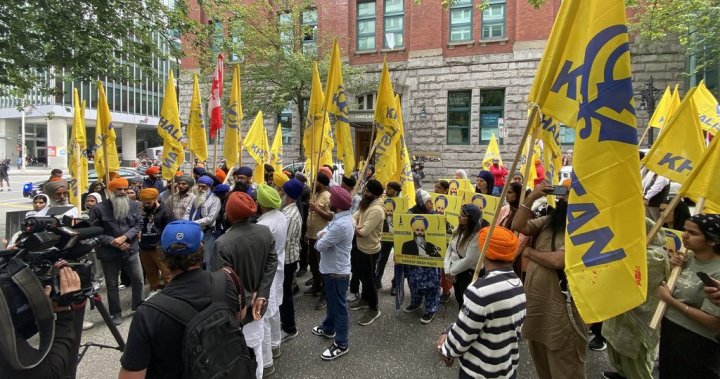British Columbia’s government is intensifying pressure on federal authorities to designate notorious Indian gangster Lawrence Bishnoi as a terrorist entity in Canada, following alarming extortion threats against Indo-Canadian business owners that have sparked fear throughout the province’s South Asian community.
The push comes amid growing concerns that Bishnoi’s criminal network has established a significant presence in Canada, with Public Safety Minister Mike Farnworth confirming that provincial officials have formally requested the federal government to add Bishnoi to Canada’s terrorist entities list.
“We’ve witnessed a disturbing pattern of threats and intimidation targeting legitimate business owners in our communities,” Farnworth stated during a press conference in Victoria. “The evidence suggests the Bishnoi syndicate has extended its reach into Canada, and we must respond with appropriate measures to protect our citizens.”
The gangster’s notoriety has escalated following his alleged involvement in the 2022 murder of Punjabi singer Sidhu Moose Wala in India. Intelligence reports suggest Bishnoi’s organization has adopted a sophisticated cross-border operational model, leveraging international networks to facilitate extortion schemes targeting Indo-Canadian businesses.
RCMP officers in Surrey and throughout Metro Vancouver have documented multiple cases where business owners received threatening messages demanding substantial payments, with the perpetrators explicitly identifying themselves as Bishnoi associates. These threats frequently referenced violence committed against targets in India as evidence of the group’s willingness to follow through on their intimidation tactics.
“These aren’t simply random criminal activities—they represent a coordinated attempt to establish a revenue stream through fear,” explained former RCMP intelligence analyst Devon Richards, who specializes in transnational organized crime. “The systematic approach and international connections make this particularly concerning from a national security perspective.”
The CO24 News investigative team has learned that federal authorities are currently reviewing evidence submitted by both provincial officials and law enforcement agencies. The terrorist designation would provide investigators with expanded powers to monitor, intercept communications, and freeze assets connected to Bishnoi’s network.
Indo-Canadian business associations across Canada have reported growing anxiety among members, with some entrepreneurs implementing enhanced security measures or relocating operations. Community leaders have established emergency support networks to assist those who have received threats.
“Many business owners are afraid to speak publicly about these threats for fear of reprisal,” said Manpreet Gill, president of the South Asian Business Association of British Columbia. “We’re seeing people install security systems, hire guards, and completely change their daily routines out of fear.”
The situation highlights the increasingly complex nature of global criminal networks and their ability to project influence across international boundaries. World News analysts point to the Bishnoi case as exemplifying how traditional organized crime groups have evolved to operate transnationally, complicating law enforcement efforts.
Federal Public Safety Minister Dominic LeBlanc acknowledged receipt of British Columbia’s request but has not yet confirmed whether the government will proceed with the terrorist designation. Sources within the ministry indicate that officials are consulting with international partners, including Indian authorities, to coordinate an effective response.
“This isn’t just a political issue—it’s about community safety and the integrity of our business environment,” noted Vancouver-South MP Jagmeet Sandhu. “When legitimate entrepreneurs cannot operate without fear of extortion or violence, it undermines the very foundation of our economic system.”
As federal authorities deliberate on the terrorist designation, provincial police forces have established specialized task forces to investigate Bishnoi-linked extortion attempts and provide protection to vulnerable businesses. Community forums have been organized throughout the Lower Mainland to share information and safety protocols with at-risk business owners.
The question now facing Canadian authorities extends beyond this single case: How can nations effectively counter criminal organizations that operate seamlessly across borders, exploiting globalization to extend their reach and influence into previously secure communities?










